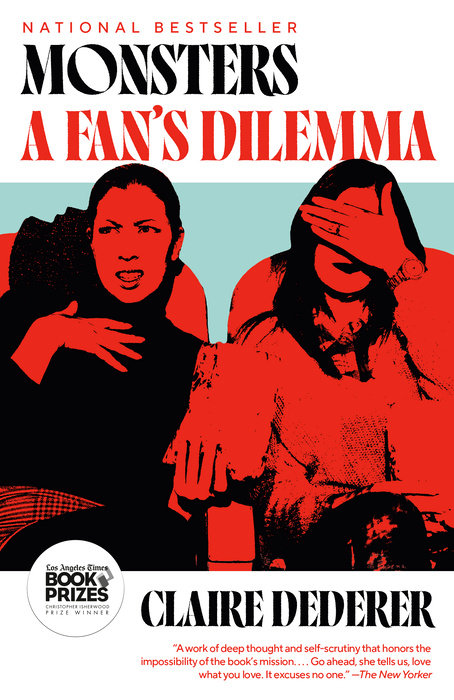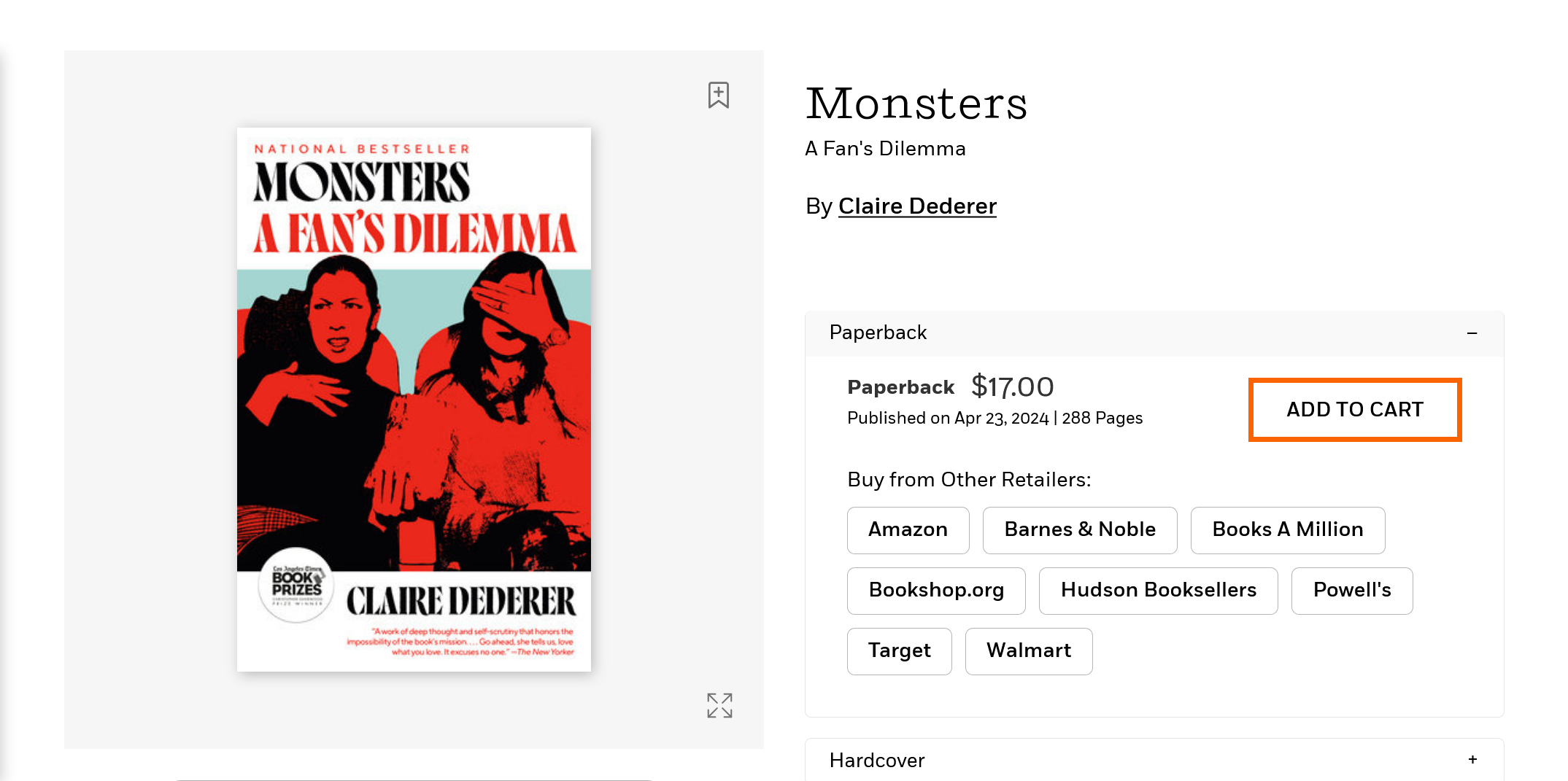I was more intrigued by Monsters: A Fan’s Dilemma by Claire Dederer (2023) at its beginning than I was by its end.
This book is presented as an audience memoir by its author. In it, Dederer considers the question of art created by artists who have behaved badly. She considers a range of different artists, including herself, and she concludes that audiences emotionally respond to whatever moves them, which for her seems sufficient.

Others readers’ reactions included a debate about the ethics of Dederer’s conclusion and this question. One for example advocated for a distinction between artists who would remuneratively benefit from the consumption of their art, which audiences should avoid, and those who would not, which was acceptable to consume. Another argued for the standards or criteria she had obtained from The Feminist Mystique, which determine her decisions about what, or whose, art to consume even as she was willing to acknowledge the legitimacy of others’ limits.
Both of these reactions ignore the effects of distribution networks for example and larger social and economic forces that affect whose art is available for consumption or what art certain audiences are expected to consume. Some even so far to argue for the impossibility of ethical consumption in capitalist economies, which could make the more conventional conclusion — art should be separated from artists — that Dederer criticizes the only attractive answer.
Some reviewers describe this noteworthy and award-winning book, which expands on Dederer’s Paris Review essay, as part memoir and part debate, in which she resists the option of extending her original thesis across hundreds of pages and insists upon repeatedly rethinking her answers to this question. Others suggest it’s more a meditation on the moral ambiguity of this issue that connects the history of artists with the histories of audiences.
One problem I had was that I expected a wider range of answers, which wouldn’t have precluded Dederer’s conclusion. This expectation is less a criticism of her personalization of this subject, which in retrospect is understandable, as it is a suggestion about its oversimplification, or reduction.
I also object to her conclusion, which is another problem with this book I have. Such a conclusion allows art consumers to do little more than accept others’ experiences. At most, we can only inquire into others’ interpretive (consumptive?) experiences, or ask how they came to their conclusions about the art they’ve consumed. Such questions are intriguing yet ultimately limited and for me unsatisfying.
I did appreciate the way this undeniably entertaining book engages its question and its readers, which is an accomplishment. I just wanted more of both.

Leave a Reply